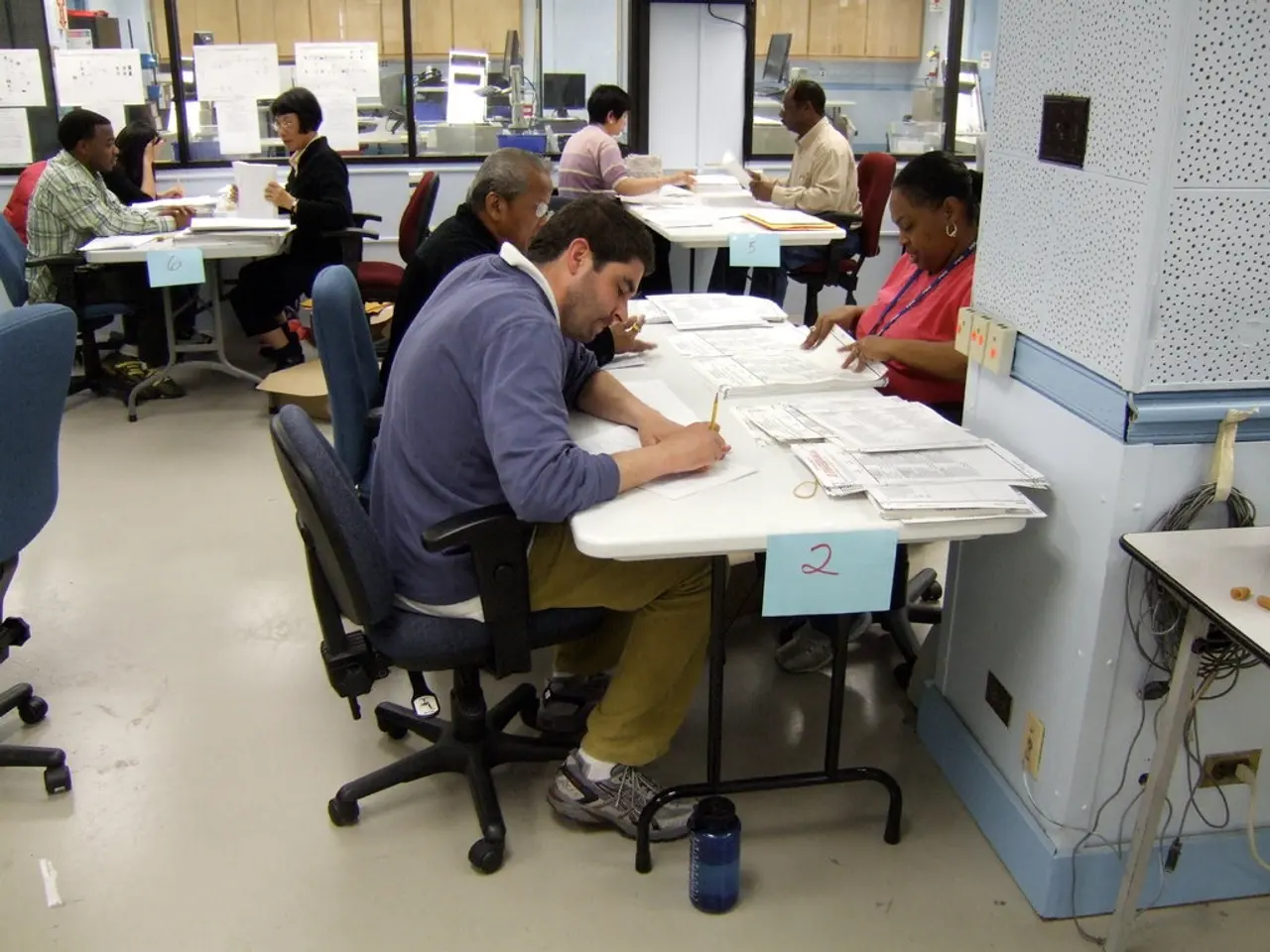Enhancing Concentration for Better Memory: Techniques for Boosting Concentration and Efficiency
In today's digital age, distractions can severely hinder our memory retention capabilities. Interruptions during information processing can lead to gaps in memory formation, making it challenging to stay focused and productive. However, implementing a few strategic changes can help manage distractions and improve our cognitive performance.
Creating a Distraction-Free Environment
Decluttering both physical and digital workspaces is the first step towards a more focused and productive workday. Remove unnecessary items from your desk, organize your devices, disable nonessential notifications, and consolidate browser tabs to reduce scattered attention.
Scheduling Focused Work Sessions
Allocate specific blocks of time dedicated to undistracted, high-concentration work. Establish routines and environment cues that signal to your brain it's time to focus. This approach, as advocated by Cal Newport in "Deep Work," can significantly enhance the ability to retain information.
Time Management Techniques
Implement methods such as the Pomodoro technique (25 minutes focused work, 5-minute breaks) and time-blocking to maintain sustained attention and reduce task switching costs. These techniques can optimize concentration and improve productivity.
Limiting Multitasking and Task Switching
Prioritize tasks and break complex projects into smaller chunks to avoid switching attention, which depletes working memory and cognitive resources. Minimizing multitasking can help manage cognitive load by focusing on one task at a time.
Managing Sensory Distractions
Minimize noise by working in quiet environments or using noise-canceling headphones to improve concentration and cognitive performance.
Practicing Asynchronous Communication
Reduce interruptions from meetings and instant messaging by opting for emails, recorded videos, and project management tools that allow responding in your own time, preserving uninterrupted focus periods.
Setting Clear Daily Goals and Priorities
Defining what must be accomplished each day can enhance motivation, help maintain focus, and reduce distractions caused by uncertainty or task overload.
By following these strategies, we can improve working memory capacity and productivity, reduce distraction-induced cognitive load, and sustain high-quality focus periods. The cognitive load theory suggests that working memory has a limited capacity, and distractions increase cognitive load, potentially overwhelming this capacity. Therefore, it's essential to minimize distractions to perform at our best.
Digital distractions can derail productivity, and using tools like website blockers can help limit access during work hours. Working memory significantly influences productivity by determining how effectively multiple tasks can be handled. Thus, by enhancing working memory, we can improve our ability to focus, remember information, and complete tasks effectively.
Supporting Mental Health
Consistently prioritizing mental wellness through mindfulness exercises, maintaining healthy relationships, and taking care of pets can contribute to better focus and productivity by reducing stress levels.
Identifying Personal Limitations
Acknowledging individual limitations in terms of concentration span, preferred working hours, or learning styles can help manage time effectively and prioritize tasks according to personal cognitive capacities.
Fostering a Balanced Lifestyle
Optimizing overall lifestyle choices, including food intake, sleep patterns, regular exercise, and hobbies like shopping, fashion-and-beauty, home-and-garden, travel, or sports, can support an overall sense of well-being and improved focus.
Enhancing Executive Function
Engaging in activities that improve executive function, such as puzzle-solving games, playing a musical instrument, or learning a new language, can strengthen cognitive abilities, promoting better decision-making, organization, and focus.
Cultivating a Car-Free Lifestyle
Whenever feasible, reducing car use and adopting alternatives like cycling, walking, or public transportation can reduce distractions, increase physical activity, and contribute to a more mindful and focused lifestyle.




